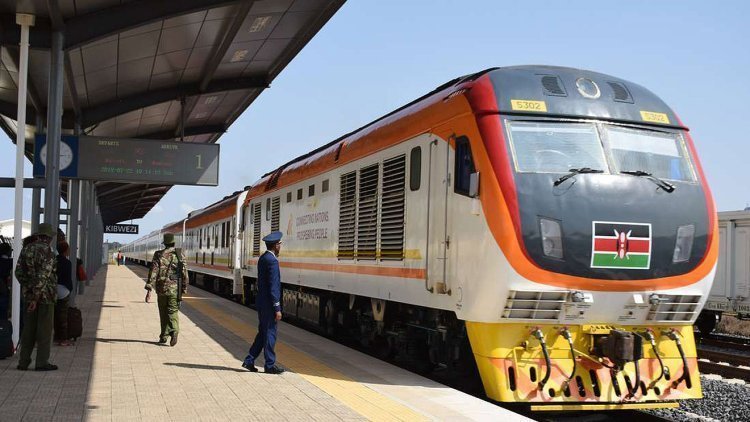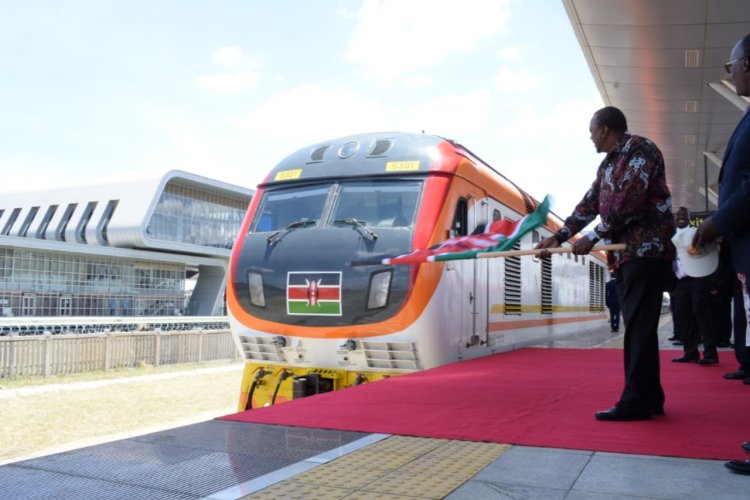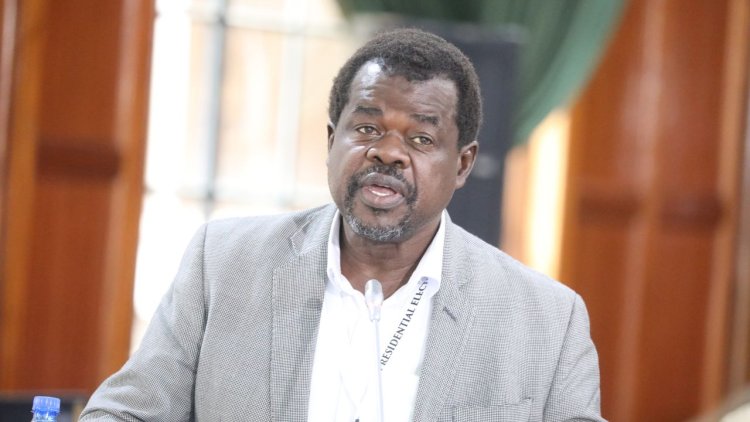Supreme Court Saves Uhuru, Ruto In Ksh500 Billion SGR Deal
The 5-judge bench comprising Deputy Chief Justice, Philomena Mwilu and justices, Mohamed Ibrahim, Smokin Wanjala, Njoki Ndung'u and Wiliam Ouko overturned a Court of Appeal's finding dictating that procurement laws were flouted.

The Supreme Court ruled on Friday, June 16 that the Ksh500 billion contract between Kenya and China for the construction of the Standard Gauge Railway (SGR) signed in the first term of former President Uhuru Kenyatta and his deputy William Ruto was legal.
The 5-judge bench comprising Deputy Chief Justice, Philomena Mwilu and justices, Mohamed Ibrahim, Smokin Wanjala, Njoki Ndung'u and Wiliam Ouko overturned a Court of Appeal's finding dictating that procurement laws were flouted.
"The procurement process for the Standard Gauge Railway (SGR) project was undertaken in conformity with the provisions of Article 227 of the Constitution. The SGR procurement was undertaken as a government-to-government contract hence exempt from the provisions of the Public Procurement Disposal Act, 2005 by virtue of section 6(1) of the said Act," stated the Apex court bench.

Former President Uhuru Kenyatta during the launch of the Standard Gauge Railway (SGR) Nairobi-Suswa trip in October 2019. /BUSINESS TODAY
The Apex court found that the procurement of China Road and Bridge Corporation (CRBC) was not undertaken by Kenya Railways Corporation (KRC) but by the government through the Ministry of Transport.
The court observed that KRC did not allocate funds towards the project directly from the consolidated funds as the government itself opted to implement the financing model.
The Supreme Court added that the SGR project was subject to interrogation before Parliament in two committees, and none of the respondents opted to be involved.
"The said parliamentary process, which is open to the public, cleared the projects. Under our constitutional design, the people have the power to exercise their oversight power through elected representatives who are domiciled in Parliament. Whether a citizen agrees with or was satisfied with what was undertaken is a matter of conjecture, provided that the laid-out procedure was followed.
"In the premises, we respectfully disagree with the appellate court and hold that the procurement process for the SGR project met the requirements of Article 227 of the Constitution as read together with the provisions of the PPDA, 2005," the verdict read by DCJ Mwilu added.
Despite the contracts approved by Uhuru's administration, it was the late President Mwai Kibaki who initiated the SGR deal.
The Court of Appeal had in 2020 accused the Kenya Railways Corporation of illegally head-hunting China Railways and Bridges Corporation (CRBC) for the project, holding that KRC as the procuring entity failed to comply with Article 227 of the Constitution in the procurement of the SGR project.
Aggrieved with that finding, KRC challenged it at the Supreme Court, expressing its aggravations towards a declaration that, as the procuring entity, it failed to comply with and violated provisions of Article 227 (1) of the Constitution and Sections 6 (1) and 29, of the Public Procurement and Disposal Act, 2005.
The Apex court has since settled that issue saying KRC did not qualify as a procuring entity.
Busia senator and activist, Okiya Omtatah, filed a petition at the High Court challenging the procurement process for the construction of the SGR and CRBC handed the resultant contracts.
The Law Society of Kenya further sought the High Court's permission to bar CRBC from building the SGR. The petitions filed in February and May 2014 pointed out a lack of due diligence on the government's part.
Omtatah had also argued that Kenyans would not get value for money and that the project's cost was inflated.
According to the activist, the project’s design and supervision of the construction services amounting to $110 million (to Ksh11 billion) was duplicated, hence a loss to the public. This was disputed by the State, which argued that there was no basis to the claim, adding that the project is of benefit to Kenyans.
Omtatah also claimed that the contract given to CRBC was inflated and that the State erred in single sourcing for the project and allowing the use of locomotives which were not manufactured by the firm.
He also argued that Parliament was not involved in the approval of the project and the public was not consulted in the process.
Omtatah wanted the court to demand a refund from the Chinese Company and go after State officials who signed the deal.
The State through the Attorney General, Public Procurement Oversight Authority (PPOA) and KRC had argued that documents filed by Omtatah on the tender, which include the contract between Kenya and China, could not be used as evidence as they were illegally acquired.







